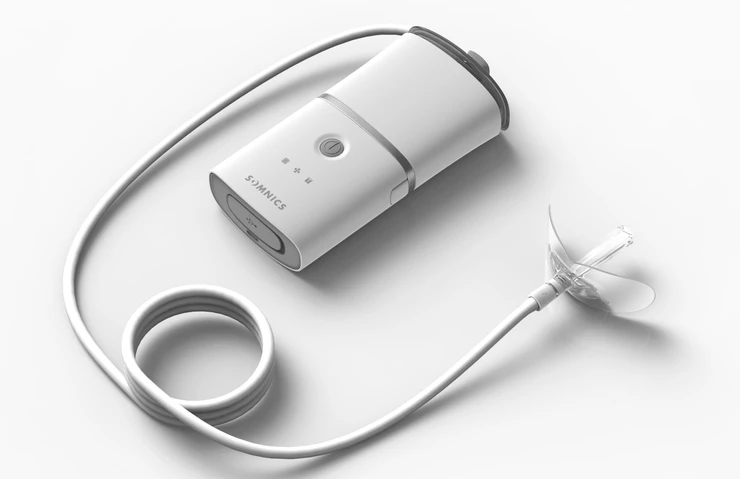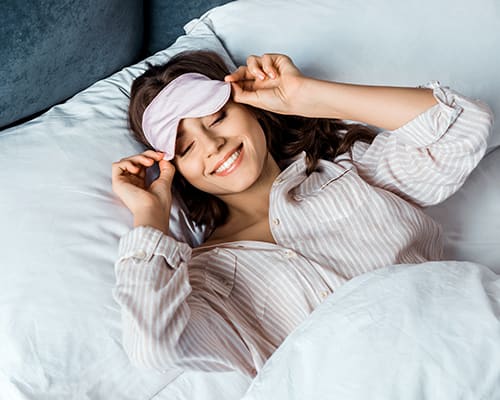Cognitive Behavioral Therapy for Insomnia (CBT-I) - Proven Methods
Wiki Article
Reliable Treatment Solutions for Handling Rest Disorders and Enhancing Relaxing Rest
In the realm of healthcare, the administration of sleep conditions and the quest for relaxed rest are critical elements of overall health. Efficient treatment options offer a diverse method to take on these difficulties, varying from cognitive behavioral interventions to all natural techniques that promote relaxation and mindfulness. The exploration of different strategies, including the combination of medication and light treatment, opens up a realm of opportunities in the quest of far better sleep top quality. As we navigate the elaborate landscape of rest disorders and look for to enhance our sleep experience, a much deeper understanding of these therapy services may hold the secret to unlocking an extra rejuvenating and fulfilling restorative journey.Cognitive Behavior Modification for Sleeplessness (CBT-I)
Cognitive Behavioral Treatment for Insomnia (CBT-I) is a structured, evidence-based treatment method that concentrates on resolving the hidden factors contributing to sleep disruptions. This kind of therapy aims to modify behaviors and thoughts that exacerbate insomnia, ultimately promoting healthy rest patterns. CBT-I generally includes a number of essential components, including cognitive treatment, rest limitation, stimulus control, and sleep health education.Cognitive treatment assists people determine and alter unfavorable thought patterns and ideas regarding sleep that may be hindering their capacity to drop or stay asleep. Sleep restriction entails restricting the quantity of time spent in bed to match the person's real sleep duration, therefore raising rest effectiveness (insomnia therapy). Stimulation control strategies assist establish a solid organization in between the bed and sleep by encouraging people to visit bed just when drowsy and to avoid taking part in boosting activities in bed
Furthermore, rest hygiene education and learning concentrates on developing healthy and balanced sleep practices, such as keeping a constant sleep routine, producing a relaxing going to bed routine, and maximizing the sleep setting. By attending to these factors adequately, CBT-I provides an efficient non-pharmacological intervention for handling sleeplessness and boosting total sleep high quality.
Sleep Hygiene Practices
Having actually established the structure of cognitive restructuring and behavioral modifications in attending to sleep problems with Cognitive Behavioral Treatment for Sleeping Disorders (CBT-I), the emphasis currently shifts in the direction of discovering vital Sleep Health Practices for keeping optimal sleep top quality and general well-being.Sleep health techniques encompass a variety of behaviors and environmental aspects that can significantly affect one's capacity to drop off to sleep and stay asleep throughout the night. Constant sleep and wake times, developing a relaxing bedtime regimen, and optimizing the rest atmosphere by keeping it dark, quiet, and cool are vital parts of good rest health. Restricting direct exposure to screens before bedtime, preventing stimulants like high levels of caffeine near going to bed, and participating in regular physical activity throughout the day can likewise advertise better rest quality.
Additionally, exercising relaxation methods such as deep breathing workouts or reflection prior to bed can assist calm the mind and prepare the body for rest. By including these sleep health methods into one's daily routine, people can develop a healthy rest pattern that sustains peaceful rest and total wellness.
Relaxation Strategies and Mindfulness
Carrying out leisure strategies and mindfulness practices can play an essential role in cultivating a feeling of calm and promoting high quality sleep. Furthermore, directed images can assist transport people to a peaceful place in their minds, helping in stress reduction and improving sleep top quality.By integrating these techniques into a going to bed regimen, individuals can signal to their bodies that it is time to relax and prepare for sleep. On the whole, integrating leisure techniques and mindfulness techniques can dramatically contribute to taking care of rest disorders and enhancing general sleep high quality.

Medicine Options for Rest Disorders
After checking out relaxation techniques and mindfulness techniques as non-pharmacological treatments for enhancing rest high quality, it is vital to consider medication options for individuals with rest conditions. In cases where way of life changes and therapy do not offer enough relief, medication can be a useful device in handling rest disturbances.
Commonly suggested medications for rest conditions consist of benzodiazepines, non-benzodiazepine hypnotics, antidepressants, and melatonin receptor agonists. Antidepressants, such sleep improvement therapy as trazodone, can be beneficial for people with co-occurring depression and rest disruptions - insomnia solutions.
It is vital for individuals to seek advice from a doctor to determine the most ideal drug option based on their certain sleep condition and clinical background.
Light Therapy for Body Clock Policy
Light treatment, likewise called photo-therapy, is a non-invasive therapy approach made use of to regulate circadian rhythms and boost sleep-wake cycles. This therapy includes direct exposure to intense light that simulates all-natural sunlight, which assists to reset the body's biological rhythm. By revealing individuals to details wavelengths of light, normally in the early morning or evening relying on the wanted effect, light treatment can efficiently readjust the circadian rhythm to promote wakefulness throughout the day and enhance relaxed sleep in the evening.Research study has actually shown that light treatment can be especially advantageous for people with body clock problems, such as postponed sleep phase disorder or jet lag. It can also be handy for those experiencing seasonal depression (SAD), a type of clinical depression that normally occurs throughout the winter season when all-natural light exposure is reduced. Light therapy is typically well-tolerated and can be used together with other treatment techniques for rest disorders to optimize results and enhance total sleep top quality.
Final Thought
In final thought, efficient treatment remedies for managing sleep problems and boosting peaceful rest include Cognitive Behavioral Therapy for Sleeplessness (CBT-I), sleep health practices, leisure methods and mindfulness, medication choices, and light therapy for body clock law. These methods can aid individuals boost their rest top quality and general well-being. It is essential to consult with a doctor to identify one of the most ideal approach for attending to sleep problems.
As we browse the complex landscape of rest conditions and look for to enhance our sleep experience, a deeper understanding of these treatment options might hold the secret to opening a much more rejuvenating and satisfying restorative trip.
Rest limitation involves restricting the quantity of time invested in bed to match the individual's actual sleep duration, thus enhancing sleep performance. Consistent rest and wake times, producing a relaxing bedtime routine, and enhancing the rest atmosphere by maintaining it dark, silent, and cool are important parts of good rest health. Light treatment is generally well-tolerated and can be utilized in conjunction with various other therapy approaches for sleep disorders to enhance results and boost overall sleep quality.

Report this wiki page